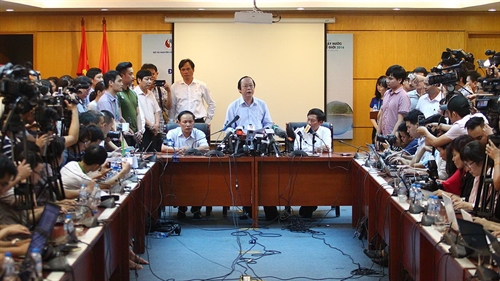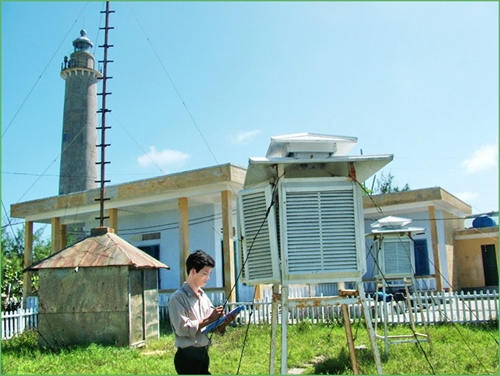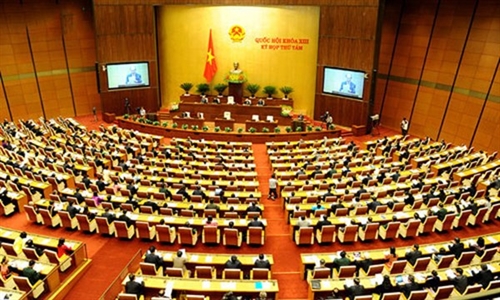Taking effect on January 1 this year, the Accounting Law (the Law) regulates accounting work, accounting apparatus, accountants, provision of accounting services, and state management of accounting.
Enterprises established and operating under Vietnamese law and branches and representative offices of foreign enterprises operating in Vietnam come within its scope of application.
Compared with the 2003 Accounting Law, the Law contains significant changes.
Adding fair value accounting principle
Under the Law, the value of assets and liabilities will be initially recorded at their original prices. After the initial recognition, assets or liabilities whose value frequently fluctuates according to the market price and may be re-determined trustfully, their value may be recorded at their fair prices at the end of the financial reporting period. This is a basic difference from the 2003 Law which provides that the value of assets are calculated at original prices and an accounting unit is not allowed to adjust without permission the value of assets already recorded in accounting books, unless otherwise provided by other laws.
According to Article 28 of the Law, assets and liabilities that will be valued and recognized according to fair value at the end of the financial reporting period include: financial tools that are recognized and re-valued according to fair value as required by accounting standards; monetary items of foreign currency origin that are valued according to the real exchange rate; and other assets or liabilities which regularly fluctuate in value and are required by accounting standards to be re-valued according to fair value.
The re-valuation of assets and liabilities at fair value will be based on true grounds. If there is no ground to determine a trustful value, assets and liabilities that will be recognized at their original prices.
The Ministry of Finance will stipulate assets and liabilities to be recognized and re-valued at fair value and accounting methods for such recognition and re-valuation.
 |
| The Accounting Law regulates accounting work, accounting apparatus, accountants, provision of accounting services, and state management of accounting__Photo: Internet |
The State’s financial statements
The making of the State’s financial statements is a new content of accounting work in Vietnam.
According to the Law, the State’s financial statements provide information on state budget revenues and expenditures, state financial funds, public debts, state capital in enterprises, assets, sources and the use of state capital.
The State’s financial statements include four types: statement of the State’s financial situation; statement on results of the State’s financial activities; cash flow statement; and written explanations on the State’s financial statements.
The State’s financial statements must be made and presented to the National Assembly and local People’s Councils at the same time with the settlement of the state budget. The Ministry of Finance will make the State’s financial statements on a national scale and present them to the Government for reporting to the National Assembly. This ministry will also instruct the State Treasury, together with financial agencies, in making local financial statements to be presented to provincial-level People’s Committees for reporting to the same-level People’s Councils.
Accounting inspection
Under Article 34, accounting inspection must be conducted only according to decisions issued by competent agencies.
The Law defines agencies competent to decide on accounting inspection and competent accounting inspection agencies.
Agencies competent to decide on accounting inspection include:
- The Ministry of Finance;
- Ministries, ministerial-level agencies, government-attached agencies and other central agencies that shall decide on accounting inspection at accounting units under their assigned management;
- Provincial-level People’s Committees that shall decide on accounting inspection at accounting units in their respective localities;
- Superior units that shall decide on accounting inspection at their affiliated units.
Competent accounting inspection agencies include the aforementioned agencies and state inspection and specialized finance inspection agencies, the state audit office and tax agencies when performing inspection, examination and auditing tasks at the accounting units.
The time for accounting inspection will be decided by competent accounting inspection agencies but must not exceed 10 days, excluding weekends and public holidays. If accounting inspection contents are complicated and need time for assessment, comparison and conclusion, the inspection time may be extended for another five days at most.
The Law also adds provisions on internal control and internal audit.
The Law requires accounting units to establish internal control regulations covering mechanisms, policies, processes and rules in order to promptly prevent, detect and handle risks.
The Law also introduces internal audit which is described as examination, assessment and supervision of the completeness, suitability and efficiency of internal control.
Based on the basic principles of this Law, the Government will specify accounting work of representative offices of foreign enterprises operating in Vietnam, the Law says.- (VLLF)









